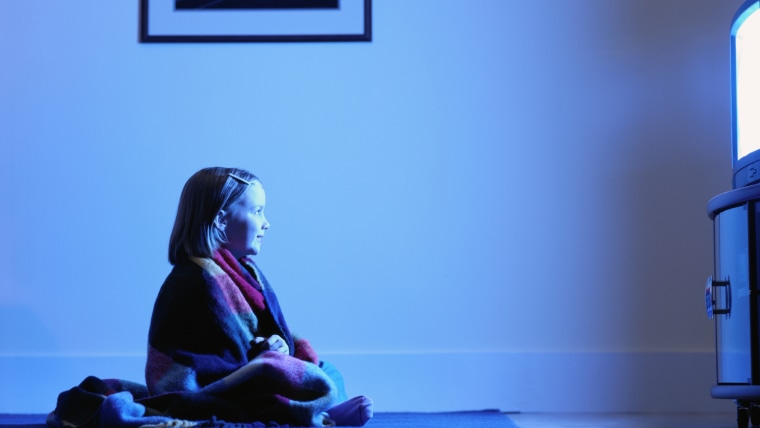It’s the rare parent who hasn’t plopped a kid in front of the TV in hopes of soothing a tiny tantrum. But parents of fussy infants and toddlers may be creating a new generation of binge-watchers by using screen time to try to calm their children, a new study suggests.
Kids who have problems with feeding, attention, sleeping or calming themselves — the so-called fussy kids — are staring at the TV more than their laid-back peers, researchers from Boston Medical Center reported Monday in the journal Pediatrics.
That could create the potential for developmental issues down the road. The ability to self-regulate is as an important part of childhood development, and can be a predictor of future academic success and healthy emotional and social growth.
“One of the major developmental tasks of children is to learn how to keep still and focus, how to deal with the various stressors and stimuli they encounter,” says the study’s lead author Dr. Jenny Radesky of Boston Medical Center. “When media is used as the primary way to calm kids down that can be a problem, because kids won’t learn how to do it themselves.”
The study looked at more than 7,400 children born in 2001, all of whom were part of the Early Childhood Longitudinal Study-Birth Cohort, a nationally representative study of early childhood development. As part of the study, caregivers completed assessments about their children’s self-regulating behaviors at 9 months old and 2 years old. Media usage was reported when children were 2.
Infants and toddlers who were rated as among the fussiest had the most media exposure, about 9 minutes more per day, regardless of socio-demographic factors. The study also found that persistently difficult toddlers are 40 percent more likely to develop problematic media habits at age 2, with more than 2 hours of their day spent in front of a screen.
Although nine extra minutes of screen time may not seem like a lot, it could become an issue as the child grows, Radesky says. “The more media children are exposed to, the more they start to expect it and prefer it to other activities.” The American Academy of Pediatrics does not recommend TV or other media use for children young than 2 years, and says media should be limited to one or two hours per day for older kids.
And just because children are quiet in front of the TV, that doesn’t mean they are calm, explains says Linda Gilkerson, Ph.D., professor and executive director of the Erikson Institute’s Fussy Baby Network: "They simply could be overwhelmed with stimulation and not developing their own strategies to cope," she says.
But doctors are realists about the problems parents face. “We’ve been telling parents to keep kids away from TV for years, but do I think they do it, probably not, and I do understand the issues,” says Dr. Deb Lonzer, director of community pediatrics at Cleveland Clinic Children’s. “But if you want your children to behave a certain way you have to model that behavior, so shut the TV off, and have dinner together, and play together. Just spend time together and children will learn.”
Although the children in the study were not exposed to smart phones, e-readers, tablets and all the other electronics that are part of daily life in 2014, the researchers hope to investigate whether fussier kids are getting handed these devices as a calming strategy.
